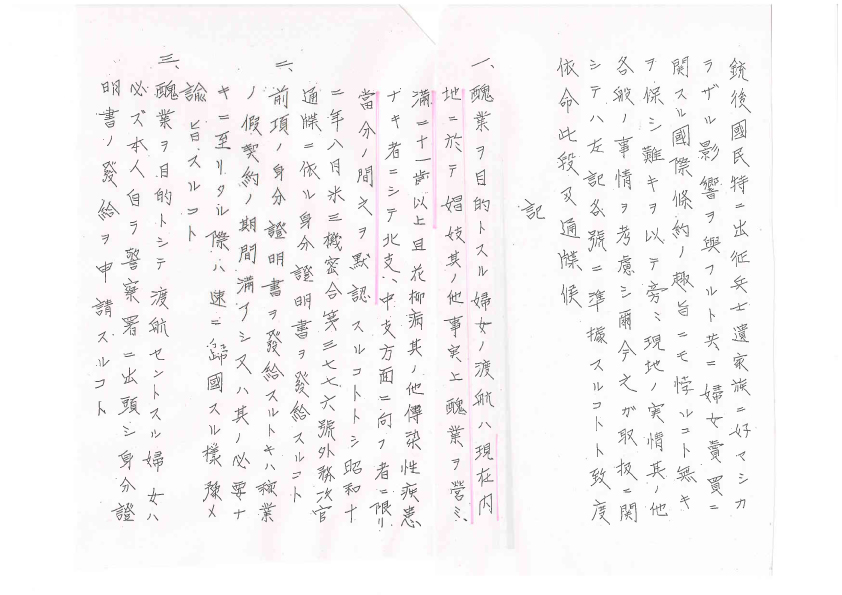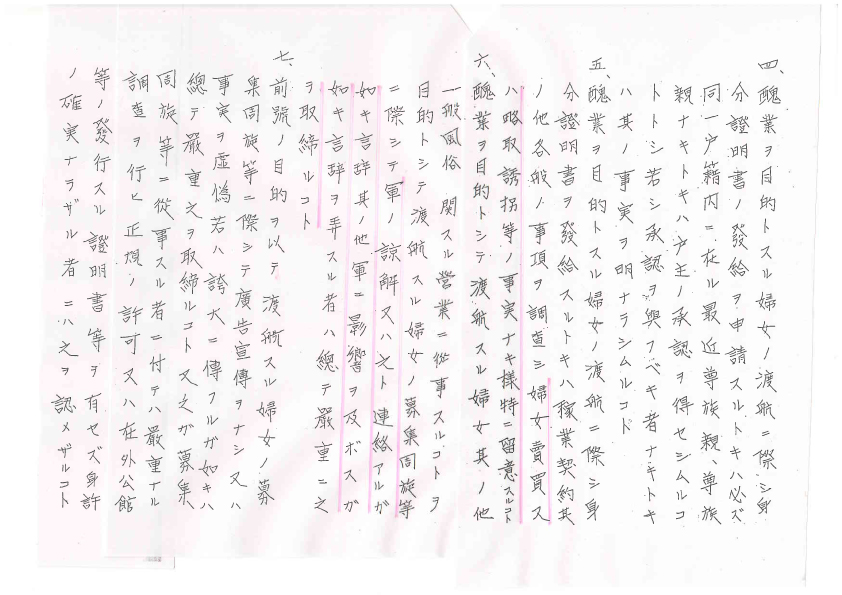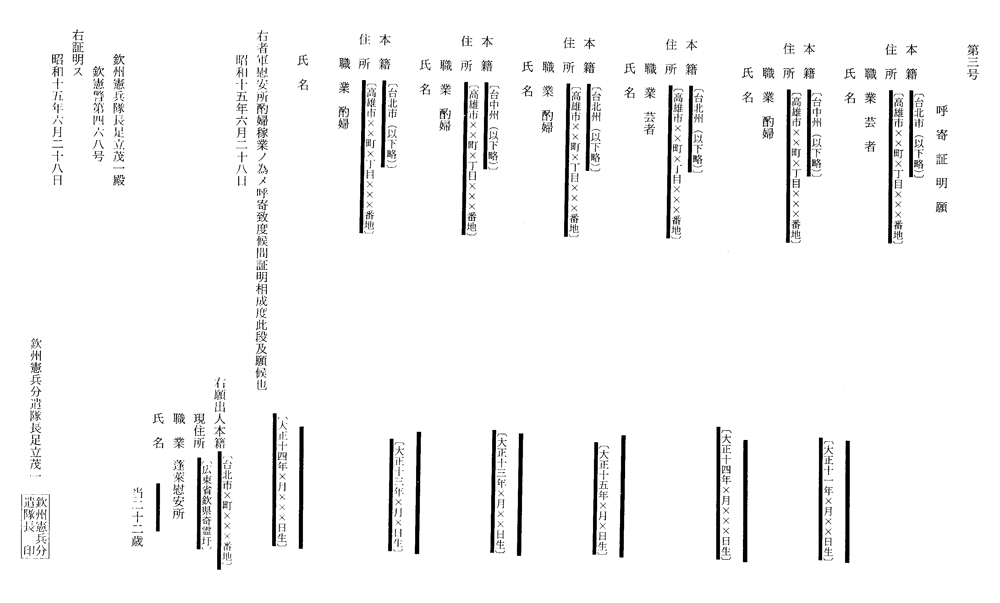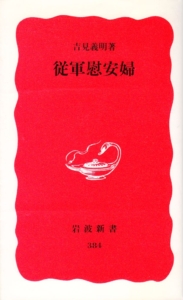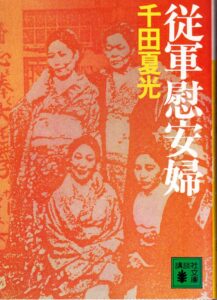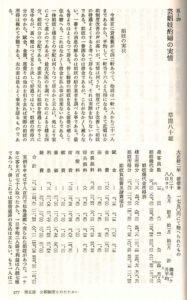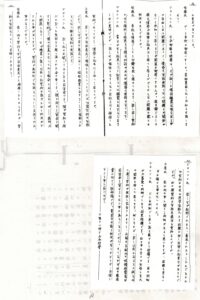The memorandum “On Recruiting Women to Military Comfort Stations” issued on February 23, 1938 by the Director of the Police Bureau of the Home Ministry prohibits women from traveling to China for the purpose of “shameful business” (ie: to become comfort women), except to turn a blind eye in the case of women who are over the age of 21 and already employed in said “shameful business”. In addition, it instructs that when issuing identity cards to women, to be mindful that “no kidnapping or trafficking has been involved.”
The Home ministry was careful when dispatching “comfort women” not to infringe upon Article 226 of the Japanese Penal Code or an international convention that prohibited trafficking in women and children. This, upon first glance, makes them look like they were trying hard in the prevention of crimes.
However, this directive was only issued within mainland Japan. The country had ratified the International Convention for the Suppression of Traffic in Women and Children, but had placed a condition that it not apply to the colonies (Korea and Taiwan). In other words, no restrictions were placed on Korea and Taiwan. This made it possible for many underage women, as well as women with no prior experience as sex workers to be sent out as “comfort women.”
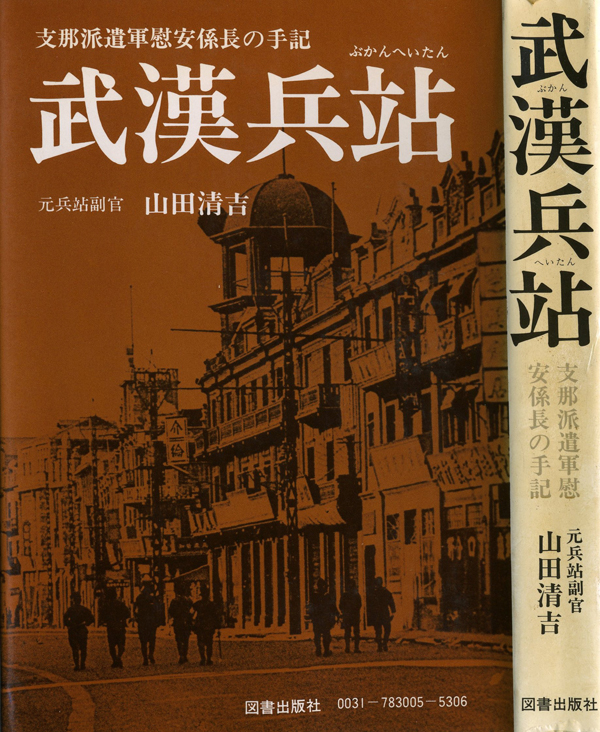
Seikichi Yamada Bukan heitan: Shina hakkengun ian kakaricho no shuki (“The Wuhan commissariat: Memoir of the Department Head of the China Expeditionary Army Comfort Facilities”)
Lieutenant Seikichi Yamada, a Military Logistics Sub Commander at Hankow headquarters and the Department Head of the China Expeditionary Army Comfort Facilities (Second Lieutenant at the time he was stationed), states that “comfort women” from mainland Japan were mainly 20 to 27 years of age with prior experience as “female entertainers” (as shogi, geigi, jokyu etc.), but that the ones from Korea usually “had no prior experience, and were younger, around 18 to 19 years of age.” It shows that unlike women from mainland Japan who were prohibited from traveling overseas, clearly there were women from occupied territories who were inexperienced and/or under 21 years of age.
It should also be noted that according to Ministry of Foreign Affairs data, in 1940 of six women from Taiwan who were sent to Guangdong Province in China as “comfort women”, one was 18, two were 16, one 15, and two 14.
This memorandum, at least in the cases of Korea and China, cannot be taken as indicative of positive involvement by the army in terms of the women. On the contrary, this policy of tacit approval first created by the Expeditionary Army shows the responsibility of the Japanese government, as well as the Japanese military, in grave infringement on their human rights.
It is important to note that this memorandum stipulates strict measures against anyone who states that there was any communication with or knowledge by the military in recruiting and procuring the women. As it was issued by the Director of the Police Bureau of the Home Ministry, we see that the Japanese government is trying to hide the fact itself that the military was responsible for recruitment.
Regardless of the fact that this directive was issued, it must be stated that it was not strictly enforced. Takayoshi Sasaki, the Shanhaiguan (China) Vice Consul has said that in May 1938 three geishas were let in for the purpose of sex work because they carried identity cards issued by the police, but that all were under the age of 21, a point prohibited by the directive. He reports that such an incident also occurred two or three other times.(Vice consul Sasaki Shina toko fujo no toriatsukai ni kansuru ken [“About the treatment of women going to China”], May 12, 1938) In addition, Military doctor Kenichi Nagasawa says he medically examined a woman from mainland Japan who had no prior experience as a sex-worker, but was made a “comfort woman” nonetheless.(Kenichi Nagasawa, Kanko iansho [“Hankow comfort station”] Publ. Tosho Shuppansha Co., Ltd.)According to testimonies selected by Ikuhiko Hata for being highly trustworthy, approximately 200 Japanese women who were sent to Jinan in 1941 as part of the Tairiku imondan (“comfort group for the continent”) and told to “help out with chores for the troops before departure”, were in fact forced to become prostitutes for the Emperor’s soldiers.(Hata Ikuhiko, Ianfu to senjo no sei [“Comfort Women and Sex in War”] Publ: Shinchosha, 1999)
Despite the fact that this directive was issued, there were even Japanese women facing things like this. I think we can imagine what happened to the Korean and Taiwanese women who were not protected by such a directive.
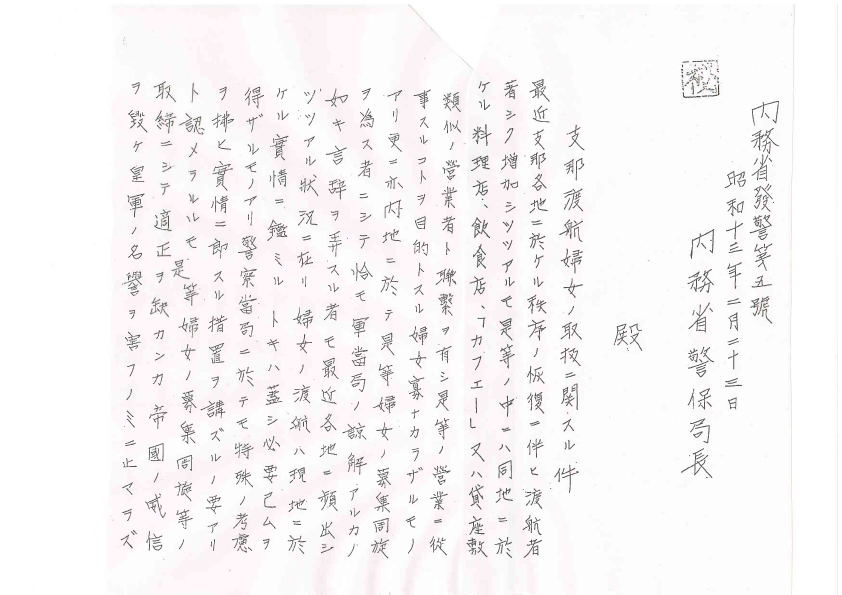
File 1 Notification “about the treatment of women going to China” issued by the chief of the police bureau, the Home ministry” February 23, 1938

File: The governor of Takao(now Kaohsuing) prefecture of Taiwan, “About the treatment of travellers going to the opposite shore who are believed to be incapable of obtain certicates of purpose going to China” August 23, 1940, owned by the Diplomatic Archives of the Ministry of Foreign Affairs, Yoshiaki Yoshimi “Document collection about the comfort women”Otsuki-shoten

